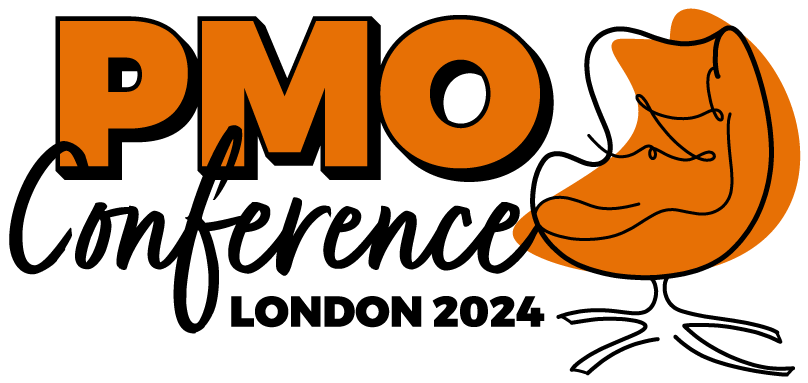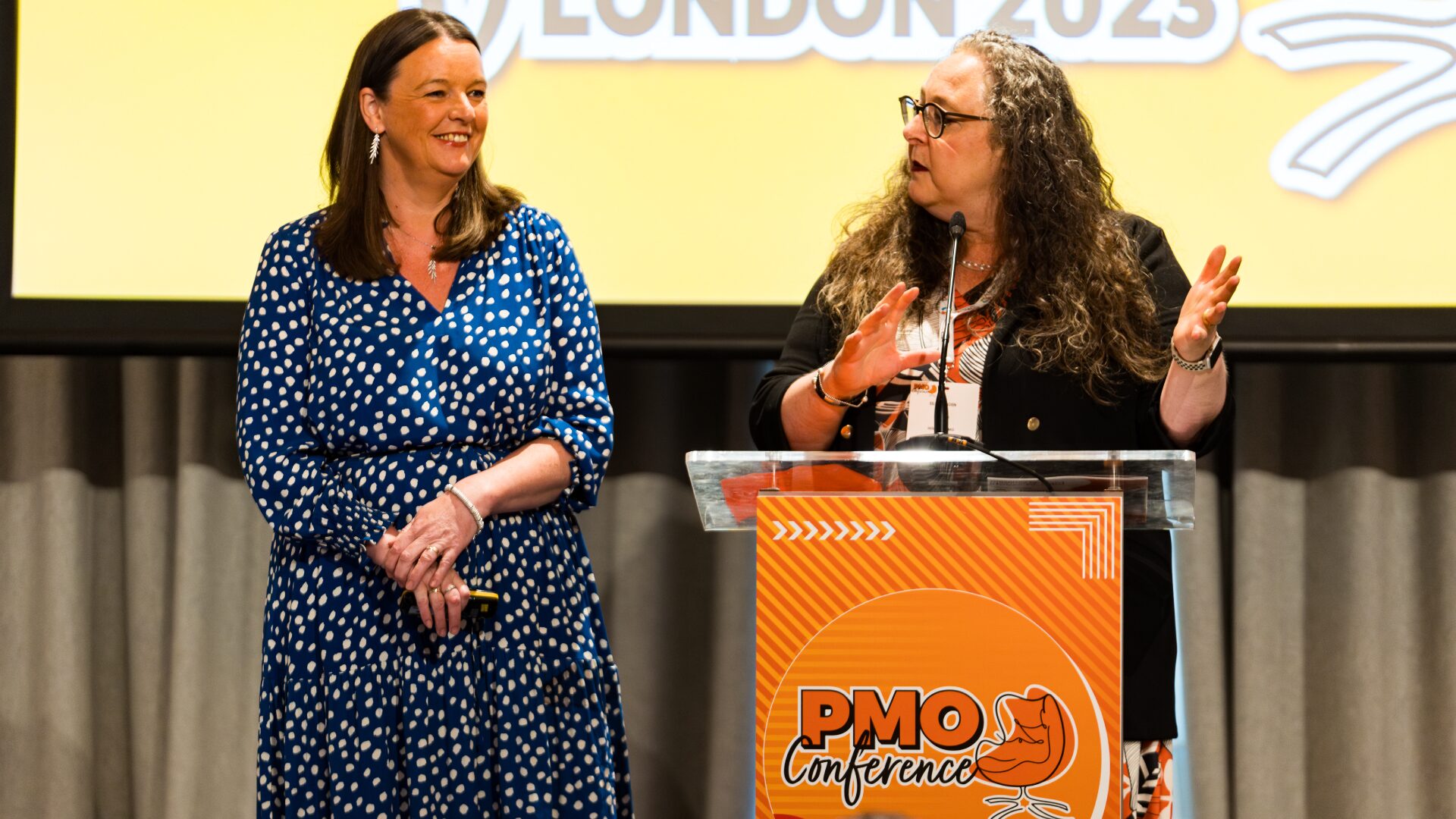
Conference Agenda
Opening Keynote
Not Another Organisational Transformation – Going Exponential, from PMO to CEO and Beyond!
Embarking on a journey through the intricacies of PMO and navigating the challenges of yet another organisational digital transformation, Mary-Beth Hosking found herself compelled to instigate a meaningful change. Collaborating with her writing partner, Ady Kalra, they conceived pivotal concepts for the 10XGeneration state, encapsulated in their new book, “Not Another Digital Transformation.” Immerse yourself in a refreshing perspective and discover how the PMO can be a catalyst and lynchpin for ushering in a new era of organisational change.
Join Mary-Beth as she guides you through the transition from PMO to CEO, sharing valuable insights gleaned from her experiences. Explore the lessons learned along this transformative journey and uncover the significance of cultivating key relationships with business stakeholders, setting yourself apart in the dynamic landscape of organisational evolution.

Mary-Beth Hosking
CEO & Author

Kate Atkin
Speaker | Author | Facilitator
Closing Keynote
Success: what lies behind the mask? Understanding and Overcoming Imposter Syndrome
Do you experience a nagging doubt that you could be ‘found out’ or put perhaps you put your success down to luck or timing? Have you ever noticed a need to be perfect and avoid making mistakes because they ‘prove’ you are not up to the job?
Success comes with its own trials. Many high achievers feel they’ve fooled the outside world and if only others could see behind the ‘mask’. They have an internal voice asking “did they really mean to promote me?”, “am I really good enough?”, “what if they find me out?”… and it can be really stressful! This is despite the objective evidence showing they are good at their job, and may be ‘imposter chatter’. The irony is that the real frauds don’t tend to experience these thoughts at all.
This closing keynote will provide you with some key strategies on how to spot the imposter chatter, overcome it (or at least dimmish it) and support others who may experience it.

Kathryn Welsby
Delivery Lead, Senior Leadership Team
PD&I
What does it take to win APM’s PMO of the Year award?
The Project Delivery & Improvement PMO operates within UK Research and Innovation (UKRI). We’ll describe our journey over the past five years to enhance project delivery and maturity across the organisation’s project profession. How we’ve managed change, and adapted to remain relevant and achieved a 100% success rate in major project business case approvals and significantly increased P3M3 maturity from level 2 to level 3.
We support the delivery of over 300 projects and programmes worth £bllns of public R&D investments. Our efforts have led to improved reporting capabilities, knowledge management, and governance practices, fostering a culture of collaboration and continuous improvement. We will describe our delivery model and enabling pathways for shared learning, training and continuous improvement across a complex organisation and the importance to train the next generation of project professionals.

Alexander King
Navigating Organisational Recovery – Using the Trust PMO
Explore the journey of an NHS Foundation Trust as it faced the challenges of being placed in special measures due to financial, workforce, and operational issues, threatening the sustainability of the organisation. Discover the pivotal role played by the Trust PMO in driving a comprehensive programme aimed at ensuring successful delivery and steering the organisation towards recovery.
This session offers a unique perspective on the intricate task of establishing a PMO from the ground up within an NHS organisation that previously lacked such a framework. With no existing PMO, processes, tools, or personnel trained in PPM, the Trust had to embark on the ambitious venture of simultaneously building a PMO and developing a robust recovery support programme.
Join the session as Director and PMO leader, Dr Noel Burkett unravels the challenges faced, lessons learned, and successes achieved during this transformative journey. Discover how the Trust PMO became a driving force, propelling the organisation out of special measures and towards a future defined by operational excellence and sustained success.

Dr. Noel Burkett
Director, Transformation, Improvement and Programme Management Office
The Hillingdon Hospitals NHS Foundation Trust

David Belshaw
Head of Project Management
Rolls-Royce
The Start of the PMO Journey in Project Data Analytics
Join us for an enlightening session with David Belshaw, as he delves into the transformative journey of the PMO at Rolls Royce. David will share his experience and insights on how the PMO has embarked on integrating project data analytics to enhance their project management capabilities and drive better outcomes.
David will explain how his team identified the gaps and challenges in their current practices, and how they are developing capability among their staff. The session focuses on the initial steps to take to start using project data analytics in your PMO.
Discover firsthand how the PMO has harnessed the power of digital artifacts and streamlined workflows to optimise their utilisation of project data, leading to tangible enhancements in their processes.
David will also unveil his strategic roadmap and visionary outlook for further advancements and innovations within the PMO, leveraging the potential of project data analytics to its fullest extent.
Project Portfolio Management – an Ongoing Journey to Maturity
In every industry, sector, and organisation, the perpetual challenge of managing limited resources against an ever-expanding list of tasks is a universal reality. At the University of Sussex, this dynamic is no exception.
Join Kristiane Kronsbein, Assistant Director, Programme & Project Delivery at the University of Sussex and learn about the strategies employed to confront this challenge head-on. Through the phased implementation of a Project Portfolio Management methodology, Kristiane shares the approach taken, highlighting the milestones achieved and the invaluable lessons learned along the way.
From unexpected curveballs to unforeseen hurdles, Kristiane will share firsthand accounts and insights into the real-world application of project portfolio management principles.
Kristiane will also the ongoing roadmap and vision for the future, detailing the ongoing efforts to enhance organisational maturity and optimize resource utilisation.

Kristiane Kronsbein
Assisstant Director, Programme and Project Delivery
University of Sussex

Annette Fairweather
PMO Director
CGI
From Vision to Value: The PMO’s Role in Driving CGI’s Success
In this session, we’ll look at the multifaceted roles of PMOs within the business and how they extend their expertise to their clients. Breaking it down into three key areas, the session looks at:
• Portfolio/Divisional PMOs: Gain insights into how CGI steer the ship, balancing big-picture strategy with the nitty-gritty of day-to-day management across divisions.
• Client-facing/Dedicated PMOs: Explore the frontline approach to embedding PMOs within client ecosystems, ensuring projects hit their mark every time.
• Consultancy PMOs: Delve into the top-tier PMO consultancy and how PMO services are delivered to clients.
With plenty of success stories and challenges along the way, Annette share real-world examples faced by CGI’s PMOs in each area – what works and what doesn’t. With a passion for PMO, Annette also shares her personal insights into what makes a great PMO within the consultancy and professional services sector.
Preserving the Past, Projecting the Future: PMO Excellence at the National Trust
In this session, we gain insights into the transformative journey of the National Trust. Faced with unprecedented challenges during the pandemic, including a dramatic reduction in staff and a halt in portfolio delivery, the NT not only rebounded but soared to achieve a monumental +140% increase in portfolio delivery to £285m within just two years.
This session will explore the pivotal role of the Centre of Excellence and PMO in driving the strategic transformation and operational excellence within the NT, from spearheading training and development initiatives to instituting rigorous project assurance and performance management processes.
Key highlights include:
• Strategic Resilience: How a Centre of Excellence, started by just two staff in 2021, became the cornerstone of recovery and growth.
• Project Environment: Navigating a highly matrixed, stakeholder-intensive landscape across diverse domains, underpinned by political, legal, and environmental complexities.
• People: The role of tailored training and development, fostering a skilled, diverse, and inclusive project management profession.
• Assurance: Integrating project assurance and performance management processes, alongside fostering a culture of innovation and knowledge sharing.
The National Trust Centre of Excellence team went on to win the APM Project Management Not-For-Profit Organisation of the Year and the Social Project of the Year.

Mike Hudson
Head of Strategic Planning and Project & Programme Management
National Trust

Chris Edwards
Head of Product Development
Quarrydale Consulting
The PMO Future is Now – Utilising AI in the PMO with Microsoft Copilot AI
In recent years, Artificial Intelligence (AI) has been a buzzword which will transform our day-to-day work processes. But what specific tools are there for you as a PMO professional, and how can they support you in your role?
Join Chris Edwards, Head of Product Development, for an insightful session where he will explore Copilot, Microsoft’s cutting-edge AI technology, and its potential to bolster your organisation’s PPM and PMO capabilities. Chris will highlight how Copilot can assist both your PMO and PPM users, including project and programme managers, by providing intelligent recommendations, valuable insights, and ultimately improving the quality of your data and decision-making.
This session is a timely one for many PMOs as they start to explore how these new technologies can not only support current approaches to PMO services but also potentially bring a whole new approach to the way PMO provides added value to the organisation. By integrating AI with your PPM solution, PMOs can significantly elevate their efficiency, quality, and adaptability.
Project Controls Versus PMO
In this session, Eileen Roden launches the latest Inside PMO Report from the House of PMO. Given their critical roles in successful project management and their distinct responsibilities, the report investigates the changing dynamics between these functions. Recent developments have brought to light new challenges and opportunities, impacting not only the functions themselves but also the organisations they support.
Key insights and conclusions from the ‘Project Controls Versus PMO’ Inside PMO Report will be presented including understanding what each functions provides, the outcomes and benefits to the organisation and the longer-term future of both functions. The session will also dig deeper into the generalist and specialist nature of PMO and the career path it provides.

Eileen Roden
Director
House of PMO

Ivan Lloyd
CEO
edison365
How Embracing Business Transformation enables Project Organizations to Deliver Greatness
The role of the PMO is evolving. As businesses look to move faster, make the right choices, and be disruptive, it is PMOs that are well-positioned to facilitate true transformation.
Delivering business change means getting to the heart of strategy, having visibility over all innovation, project, and portfolio efforts, delivering the right projects, and ensuring benefits are realized.
In this speaking session, Ivan will help you understand the key stages of end-to-end business transformation, how to demonstrate value through delivering on your company’s core objectives, and the role PMOs should play in championing change.
The Value of Effective Resource Capacity Planning
Effective resource capacity planning benefits all levels of enterprise strategy execution. Yet, many organizations do not realistically identify skills gaps and delivery constraints until after portfolio roadmap prioritization and funding discussions have occurred.
This presentation will show the value proposition for continuously integrating resource capacity planning into all aspects of portfolio planning and delivery regardless of delivery methodology.

Lloyd Norman
Vice President Strategic Solutions
Prosymmetry



